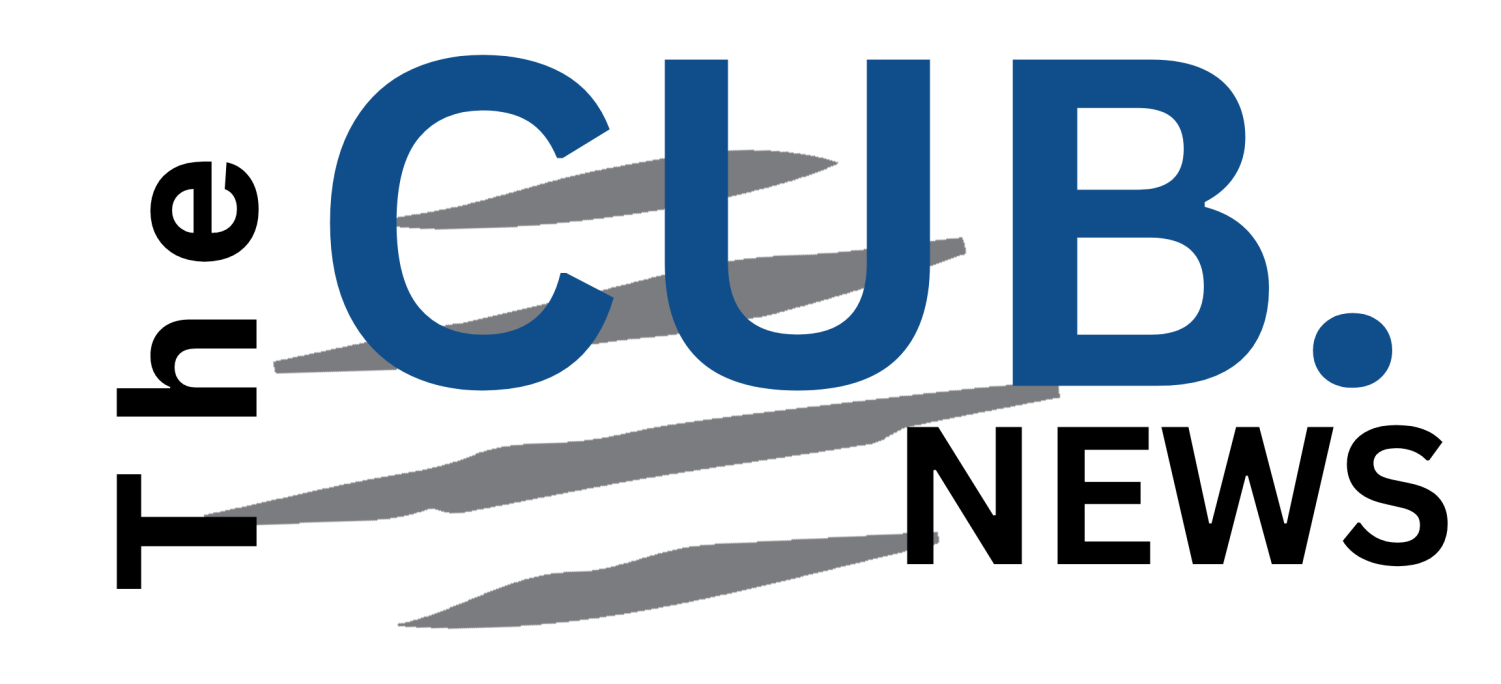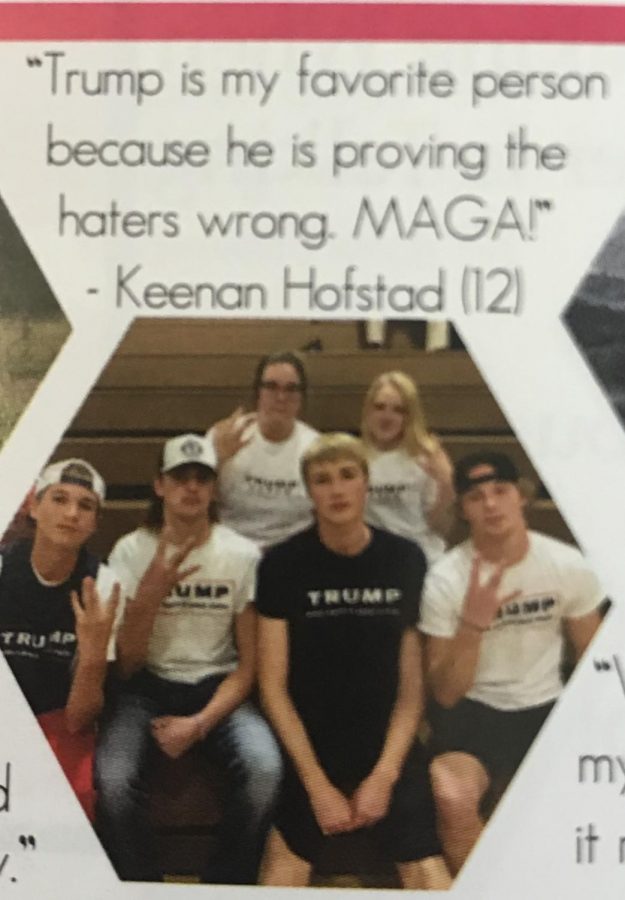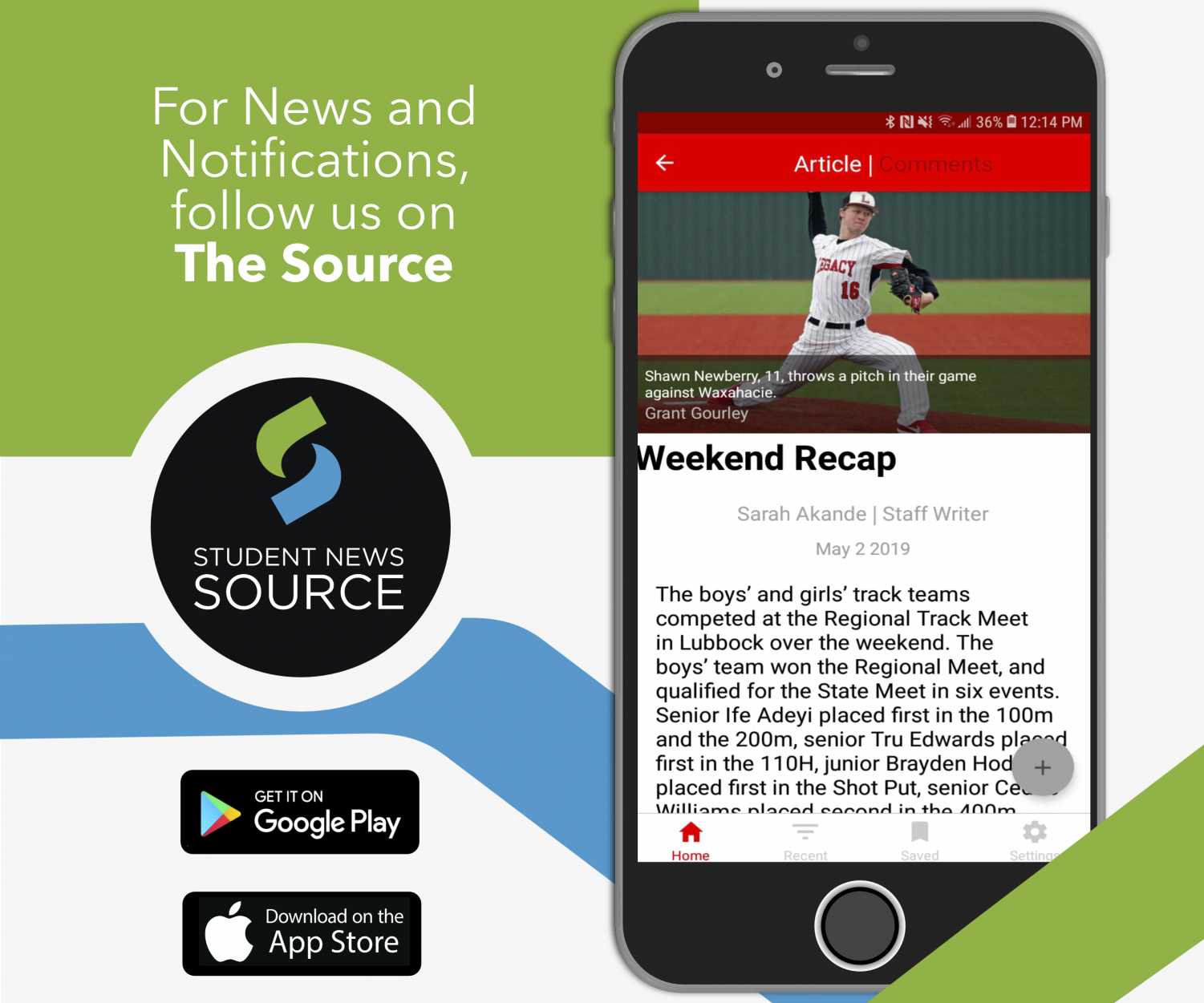Yearbook Photo Sparks First Amendment Conversation
The photo sparked controversy among students and community members.
June 7, 2019
A recent quote and photo noticed in the 2018-2019 Sedro-Woolley High School yearbook has sparked a debate over the limits of student’s freedom of expression, and just where the line of appropriate conduct in a school environment lies.
The photo in question is of a group of SWHS students wearing shirts were labeled with, “Trump,” and “Make America Great Again.”
The photo was featured along with a quote from senior Keenan Hofstad which read, “Trump is my favorite person because he’s proving the haters wrong. MAGA!”
The aspect that raised the most concern from those who saw it was the gesture being made by the students in the photo. All but one of the students held up their hands, crossing their middle and ring fingers to make a W.
The symbol has had many interpretations over the years, including being representative of ‘west side’ gangs. The sign has also created turmoil amongst community members because of it’s rumored affiliation with white supremacy. The “okay” sign, with the index finger touching the thumb, has received publicity in the last year, with critics claiming that it is also a symbol for “white power.”
SWHS junior Aryana Hern feels that more should have been done to prevent the confusion. “The sign obviously was not meant as a gang sign and I understand that, I just feel like we should change the sign a bit so it doesn’t look like a gang sign,” said Hern.
The students in the photo have attributed it’s meaning to “Woolley Pride,” and “Win.” The sign is also popular on the campus of Washington University, as their unofficial hand sign, intended to show UW pride.
SWHS Yearbook Advisor Steve McCartt believes that just like the phrase MAGA, the hand sign is another piece to the puzzle that has been construed to have multiple meanings.
“The first time I saw it used was back in the early 2000s when we were winning state championship after state championship in wrestling and the wrestlers started doing it first. At first I thought they shouldn’t be doing that because that also is a sign for Westside, it’s a gang sign,” said McCartt.
The attention that the photo and quote received online came as a surprise to McCartt, who didn’t find out about the upset until one of his yearbook students showed him a post about it online. “The one person who should have been in the loop the most about it, I was the least in the loop about it,” he said.
The recent outrage exhibited on social media by those who believe the yearbook has crossed a line, has brought into consideration how student opinions should be represented in school.
In the 1969 Supreme Court case of Tinker v. Des Moines Independent Community School District, the court ruled that students do not, “shed their constitutional rights to freedom of speech or expression at the schoolhouse gate.”
The landmark case occurred after several junior high students were suspended for wearing armbands in protest of the Vietnam War. The ruling protects students rights to represent any political views through clothing, including the Trump shirts that appear in the yearbook.
The students involved in the photo have faced backlash online because of the photo.
“We’re getting so much hate from people who don’t even know the first thing about us. They just know that we wore the shirt,” said senior Eli Dejong.
SWHS English teacher Dave Shusta is well aware that the First Amendment applies to students, but believes that just because students may be legally permitted to do something, does not mean that they always should, without considering how their message will be received.
“It’s all about context, purpose, and audience,” said Shusta.
Senior Holly Davis said that she has not received and backlash because of the photo, but believes that some people have misinterpreted the students original meaning. “We only did it to dress up for a volleyball game, so I think it kind of got taken out of hand,” said Davis.
The attention was enough to draw Sedro-Woolley School District Superintendent Phil Brockman to speak with the yearbook class last week and incited a class discussion on the role of the yearbook, and how it is protected under the First Amendment.
“He seemed very supportive of the yearbook,” said McCartt, who also believes that the reaction is a testimony to how American culture disregards facts for the sake of drama.
“This whole thing is a knee-jerk reaction,” said McCartt. “We’ve lost that ability to communicate with each other, and it’s sad.”
Dejong also feels that the lack of communication between opposing points of view is proving to be detrimental to society. “It shows how we’re too quick to fight with each other instead of respecting each other,” he said.
McCartt believes that his past experiences as a debate coach allow him to see both sides of the argument, but as the yearbook advisor, he ultimately stands by his decision to include the quote and photo.
“I read the statement that Keenan Hofstad said in the year book and I didn’t see anything that was racist in his statement,” said McCartt. “People have put racist connotations on it [MAGA] but just because they say it’s racist, doesn’t make it racist.”
Avid Trump supporter and SWHS junior Kaeleb Ferris believes that the issue primarily revolves around a dispute of student’s rights. “This has to do with freedom and I myself believe that if you support Trump, you can show that,” said Ferris.
As of now, the school has not made any attempt to change policies for what can and cannot be printed in the yearbook.
The yearbook currently does not allow any quotes or photos that show explicit, obscene, or directly offensive behavior.
Rachael Rodriguez-Padilla, an SWHS English Language Learning Support para eduator understands that the situation has been difficult to define. Rodriguez-Padilla believes that everyone could benefit from taking the opinions of others into account before doing or saying something that potentially could be upsetting.
“In a school setting where we have diversity and minorities, we need to be respectful of each other,” said Rodriguez-Padilla. She considers herself an advocate for all students and expressed a deep sadness at the fact that SWHS was hit with such a dividing controversy.
Rodriguez-Padilla also expressed that she hopes Sedro-Woolley can do better in the future when dealing with sensitive topics. “I’m raising five kids in this community and I want them to feel good to be apart of an incredible community and not feel as if they are the minorities,” she said.
For many SWHS members the situation has no clear resolution. “I think people should have a right to freedom of speech, but for a public school full of different ethnicities and nationalities I think it’s not appropriate for them to put it in the yearbook that students are going to have forever,” said junior Lori Castellanos.
.



